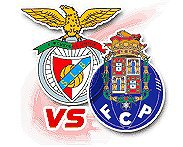FC Porto ultrapassa SL Benfica em número de títulos
O FC Porto com a conquista da Taça de Portugal frente ao Vitória SC por 6-2, tornou-se no clube com mais títulos no futebol português totalizando agora 69 contra 68 do SL Benfica.
Existe uma polémica recente sobre este número de títulos, que no entanto não tem qq razão de ser, pois a Taça Latina agora adicionada aos títulos do SL Benfica, não é nem nunca foi um título oficial reconhecido pelas instituições que regem o futebol nacional e internacional.
Aliás diga-se que consultando diversas fontes e diversos orgãos de CS portugueses, observa-se claramente que até há muito pouco tempo não havia qualquer referência a essa Taça latina. Consultando também bibliografia desportiva a mesma taça não é referida como sendo um orgão oficial. Para quem não sabe esta taça organizada entre 1949 e 1957 funcionava como um torneio de pré-época, sendo os participantes convidados, não necessariamente os campeões dos respectivos países. O FC Porto foi por exemplo campeão em 1955/56 sendo depois o SL Benfica convidado para essa taça.
Aqui fica o quadro com o número de títulos:
SL BENFICA = 68
– Taça dos Campeões Europeus: 2 (1960/61 e 1961/62).
– Campeonato Nacional: 32 (1935/36, 1936/37, 1937/38, 1941/42, 1942/43, 1944/45, 1949/50, 1954/55, 1956/57, 1959/60, 1960/61, 1962/63, 1963/64, 1964/65, 1966/67, 1967/78, 1968/69, 1970/71, 1971/72, 1972/73, 1974/75, 1975/76, 1976/77, 1980/81, 1982/83, 1983/84, 1986/87, 1988/89, 1990/91, 1993/94, 2004/05 e 2009/10).
– Taça de Portugal: 24 (1939/40, 1942/43, 1943/44, 1948/49, 1950/51, 1951/52, 1952/53, 1954/55, 1956/57, 1958/59, 1961/62, 1963/64, 1968/69, 1969/70, 1971/72, 1979/80, 1980/81, 1982/83, 1984/85, 1985/86, 1986/87, 1992/93, 1995/96 e 2003/04).
– Taça da Liga: 3 (2008/09, 2009/10 e 2010/11).
– Supertaça: 4 (1979/80, 1984/85, 1988/89 e 2004/05).
– Campeonato de Portugal:3 (1929/30, 1930/31 e 1934/35).
FC PORTO = 69
– Taça dos Campeões Europeus: 2 (1986/87 e 03/04).
– Taça UEFA: 1 (2002/03).
– Liga Europa: 1 (2010/11).
– Taça Intercontinental: 2 (1987/88 e 04/05).
– Supertaça Europeia: 1 (1987/88).
– Campeonato nacional: 25 (1934/35, 1938/39, 1939/40, 1955/56, 1958/59, 1977/78, 1978/79, 1984/85, 1985/86, 1987/88, 1989/90, 1991/92, 1992/93, 1994/95, 1995/96, 1996/97, 1997/98, 1998/99, 2002/03, 2003/04, 2005/06, 2006/07, 2007/08, 2008/09 e 2010/11).
– Taça de Portugal: 15 (1955/56, 1957/58, 1967/68, 1976/77, 1983/84, 1987/88, 1990/91, 1993/94, 1997/98, 1999/00, 2000/01, 2002/03, 2005/06, 2008/09 e 2009/10).
– Supertaça: 17 (1980/81, 1982/83, 1983/84, 1985/86, 1989/90, 1990/91, 1992/93, 1993/94, 1995/96, 1997/98, 1998/99, 2000/01, 2002/03, 2003/04, 2005/06, 2008/09 e 2009/10).
– Campeonato de Portugal: 4 (1921/22, 1924/25, 1931/32 e 1936/37).
____________________________________________________________________________
Troféus oficiais conquistados por clubes portugueses
1.º – FC Porto, 69 títulos
2.º – Benfica, 68
3.º – Sporting, 45
4.º – Boavista, 9
5.º – Belenenses, 7
****
Fontes:

 Ex assistente del più celebre connazionale al Chelsea e all’Inter, il trentaduenne tecnico del club portoghese è stato osservatore per Robson e c.t. delle Isole Vergini. E intanto ha inanellato sei vittorie e un pari nelle prime 7 gare di campionato e 4 successi su 4 in Europa League
Ex assistente del più celebre connazionale al Chelsea e all’Inter, il trentaduenne tecnico del club portoghese è stato osservatore per Robson e c.t. delle Isole Vergini. E intanto ha inanellato sei vittorie e un pari nelle prime 7 gare di campionato e 4 successi su 4 in Europa League


